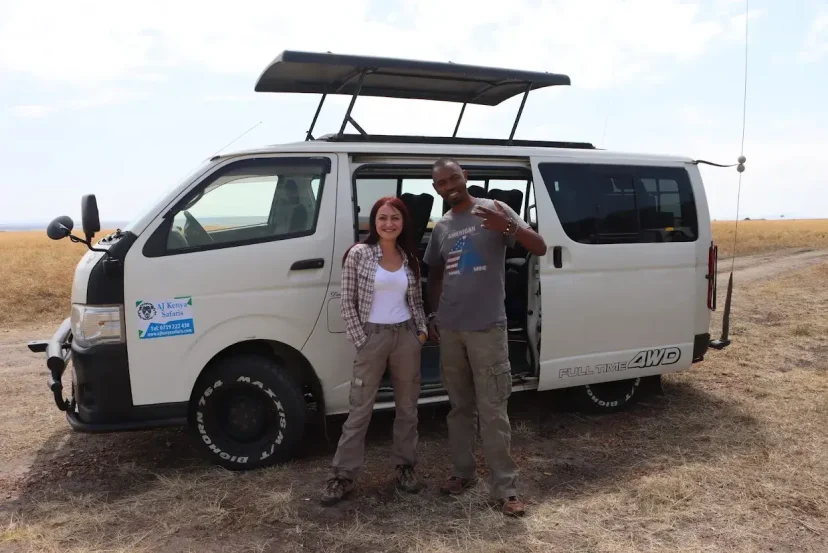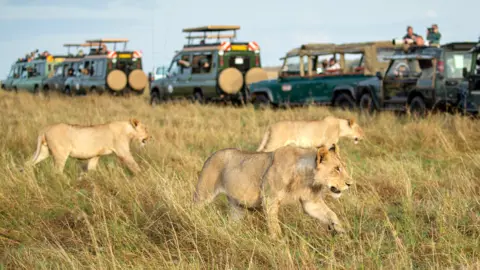Recommended News For Deciding On Sgr Transfer To Mombasa Airport
Recommended News For Deciding On Sgr Transfer To Mombasa Airport
Blog Article
What Health Precautions Must I Be Aware Of When I Travel To Mombasa In Kenya?
Make sure you are taking the appropriate health precautions to ensure your safety and pleasure when you're on vacation in Mombasa. Here are some precautions to take.
1. Vaccinations
Routine Vaccinations: Ensure that you are up-to-date on routine vaccines such as measles-mumps-rubella (MMR), diphtheria-tetanus-pertussis, varicella (chickenpox), polio, and your yearly flu shot.
Hepatitis A (recommended for everyone who travels) It is caused by the risk of drinking water contaminated and eating contaminated food.
Hepatitis B travelers who are exposed to blood and bodily fluids due to sexual contacts, medical treatments or use of drugs should be informed.
Typhoid vaccination is recommended for all travelers, especially those visiting rural or smaller regions, staying with relatives or eating out in unfamiliar locations.
Yellow Fever Certificate of vaccination is required for those who are traveling from countries at possibility of transmission of yellow fever. Find the most current guidelines.
Rabies: A consideration for those who participate with outdoor activities that place them at risk of bites, including camping, hiking or caving.
2. Malaria Prevention
The malaria epidemic in Mombasa is widespread. Talk to your doctor regarding the antimalarial medicines suitable for you.
Wear long sleeves and pants at the night and at evening, and use insect repellent that contains DEET. Sleep under an insect net if you are not in a room with air conditioning or one with a good screen.
3. Food and Water Safety
Avoid tap water or ice cubes as well as drinks that have not been sealed. Avoid drinking tap water as well as drinks that contain ice cubes.
Be Safe: Eat only cooked and well-cooked food. Avoid eating raw meat, seafood and unwashed fruit and vegetables. Be cautious with street food. Select a restaurant that is reputable instead.
4. Diarrhoea in Travelers
Take preventive measures by washing your hands frequently using soap or water. Beware of drinking and eating foods from sources you're not certain about.
You should carry medications for example, Imodium (loperamide) as well as oral salts to rehydrate. To treat serious cases, ask your doctor for antibiotics.
5. Sun Protection
Sunscreen: Use a broad-spectrum sunscreen with an SPF of at least 30. Apply sunscreen frequently, particularly when you sweat or swim.
Protective clothing is essential. Caps, sunglasses, and long-sleeved, light clothing are all good options to limit sun exposure.
6. Heating and Hydration
Keep hydrated. Drink plenty of fluids, especially water, to avoid dehydration. Avoid drinking excessive amounts of caffeine or alcohol, since they can lead to dehydration.
Avoid Overexertion. Make breaks during most hot times of the day. Be sure to avoid heat stroke or exhaustion by seeking shade and cool areas.
7. Water Sports: Safety and Security
Swimming in designated Areas Pay attention to local recommendations regarding the swimming conditions and possible hazards, such as strong currents.
Marine Life Awareness - Know and beware of marine life that is harmful, such as sea urchins and jellyfish. When walking near water that is shallow wear water shoes.
8. Care and Insurance. Care and Insurance
Travel Insurance: Make sure you have a comprehensive travel insurance that covers medical and evacuation emergencies.
Local Medical Facilities: Get to know the local medical facilities. Most major hotels have information about nearby medical facilities and hospitals.
Meds: Carry a large quantity of all prescription medicines you are taking, as well as the prescriptions you have.
9. Emergency Contacts
The Embassy Contact the Embassy of your country of residence in Kenya.
Local Emergency Numbers. Find the local emergency phone numbers for police (999), firefighters (999) and ambulances (999).
These precautions for health will allow you reduce your risk to allow you to focus on your holiday and enjoy the experience. See the recommended mombasa safari tours for more advice including tour firms in kenya, kenya safari packages, tour agents in kenya, african safari excursions, africa in kenya, kenya africa travel, tour and travel company, african safari africa, safari trips in kenya, african safari packages and more.
What Are The Weather-Related Considerations I Should Be Aware While On Holiday In Mombasa?
When you plan a trip to Mombasa, Kenya, understanding the local weather patterns is crucial to packing properly and getting the most out of your trip. Here are the main factors to consider when planning your trip:
1. Climate Overview
Tropical Climate: Mombasa has a tropical climate that is hot and humidity year-round. The temperature ranges from 24 degrees to 32degC.
2. Seasons
Hot and Humid Season (November to April) This time period is characterized by extreme temperatures and high humidity. The peak tourist season is December and January.
Long rains from April to June : Heavy rain and storms are common throughout the rainy season. It can become difficult to drive on muddy roads. This is the off-season for tourism.
Cooler season (June to October) The temperature and humidity levels are the lowest in this period. The weather is ideal for outdoor activity.
Short rains (October to November): These are short showers of rain that are less intense. The rains are typically short, and then followed by sun.
3. Packing Tips
Lightweight clothing: To stay cool and dry in humid weather take lightweight, breathable clothes such as linen or cotton.
Rain gear: If you are traveling during rainy season make sure you have an waterproof jacket, an umbrella, and waterproof footwear.
Sun protection Wearing a hat that has a broad brim, wearing sunglasses, and wearing light clothing to cover your skin all can help you stay safe from sun.
Swimwear: Make sure that you bring your swimsuit at all times you visit the hotel pools and beaches.
4. Weather-Specific Activities
Beach Time: The ideal time to be at the beach is during cooler months (June-October), when the weather and conditions are pleasant.
From November to March, the calm and clear waters are perfect for water sports like snorkeling, diving and diving.
Wildlife Viewing. The cooler months (June-October) are also great for safaris and wildlife trips because the temperatures are more tolerable.
5. Considerations of Health
Hydration: The scorching and humid climate demands you to be well-hydrated. Drink plenty of water when you intend to spend time outdoors.
Heat-related Infections: Know that heat exhaustion and heatstroke are possible. Pause in shade, wear loose-fitting clothes, and avoid strenuous activities during peak heat.
6. Travel Adjustments
Travel during the rainy seasons Be prepared for disruptions in travel in the event that you visit during this time. Some roads could be impassable. Outdoor activities are likely to be restricted.
Rainy season can be causes of flight delays. Plan your trip ahead and be aware of any delays.
7. Environmental Considerations
Natural Hazards: Pay attention to the potential for flooding in heavy rains that come down. Be aware of forecasts for local weather and follow safety recommendations.
Be aware that tides may vary drastically when you plan your beach activities. Look up local tide times for safe swimming and beachcombing.
It is possible to plan your vacation activities in advance, pack appropriately and relax in Mombasa and be safe by knowing the weather conditions. View the most popular mombasa safari tours for blog examples including mombasa packages, tour and travels, cheap kenya safari packages, kenya safari packages, kenya safari beach, tours & safaris, kenya holiday packages, kenya travel packages, safari excursions, tours safari africa and more.
What Financial Planning Considerations Should I Be Aware Of Before I Travel To Mombasa Kenya?
If you are contemplating a trip to Mombasa, Kenya be sure to budget your money well. It will guarantee the trip will be enjoyable. These are the most important financial considerations to keep in mind:
1. Budgeting
Accommodation: Do your homework and book your accommodation in advance. Prices vary widely based upon the kind of property and the location of the lodging.
Include the costs of airfares, local transport (tuk-tuks and matatus) and car rentals, and any excursions.
Plan your budget for dining out and eating, including eating out and snacks. The cost of dining out can range from local eateries which are less expensive to costly high-end restaurants.
Create your tours and activities Consider the costs of entry fees, guided tours as well as other activities, such as safaris, water sports and cultural tours.
2. Currency and Exchange Rates
Kenyan Shilling (KES): This is the currency of Kenya. Be familiar with the rate of exchange.
Currency Exchange Money with trustworthy banks and bureaus for currency. You could also exchange your currency in your hotel. Avoid exchanging cash on the streets.
ATMs: ATMs are available all over Mombasa. Make sure your card is suitable for international withdrawals.
3. Payment Methods
Cash: Carry cash to pay for small expenses, tips and for places that do not take credit cards.
Credit and Debit Cards: Major credit cards are accepted in restaurants, hotels as well as larger retail stores. Inform your bank about your travel plans so that you don't risk your card from being denied access.
M-Pesa: M Pesa has become an increasingly popular mobile payment option in Kenya. It's an excellent option if are planning to use an SIM card in Kenya.
4. How to Save Money
Travel off-season: Traveling in the shoulder season, also known as low season (April through June and from October to November) can save money on airfare and lodging.
Book in Advance: Secure better deals on accommodations, flights and tours by making reservations at least a month in advance.
Local restaurants. For a more authentic experience, eat in local eateries or food stalls.
5. Tipping
Tipping is customary in Kenya. A standard tip of 10% is recommended in restaurants if the service is not included. Tipping the hotel staff is your own discretion.
It is nice to give small amounts of money in local currency. For instance, you can tip the porters KES 50-100 for a bag and the housekeepers KES100 per day.
6. Emergency Funds
Reserve Funds - Keep an emergency fund and access to additional funds through your debit or credit cards in the event that you require them.
Travel Insurance: Purchase a comprehensive insurance for travel, that includes medical emergencies as well in trip cancellations. It also protects you against theft and loss.
7. Security
Use hotel safes for storing valuable items like cash, passports and other valuables. Be careful when using ATMs, particularly during the night.
Avoid carrying large sums. Don't carry huge cash amounts with you. You can divide your cash and credit cards between a wallet and a safe place.
8. Local Transactions
Bargaining is commonplace on local markets. Respect the seller and be humorous. Be sure to get an affordable price.
Receipts and records Keep records of your significant purchases and transactions. This can be useful for tracking your budget and in case there is an issue.
9. Understanding Fees
It is possible to check with your bank if there are any fees associated with international withdrawals. Certain ATMs might charge a fee when making use of foreign credit cards.
Currency Conversion Fees Be aware of any charges your bank might charge you for currency conversion when using your credit or debit card overseas.
Consider these aspects of financial planning to control your expenses and have peace of mind when you travel to Mombasa. Read the most popular transfer to Diani for site tips including kenya beach mombasa, trips to kenya safari, tour mombasa, safari trips in africa, safari excursions, tours and safaris in kenya, kenya beach and safari holiday, kenya safari holiday packages, facts about kenya, african safari kenya and more.